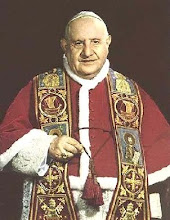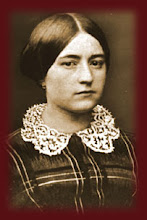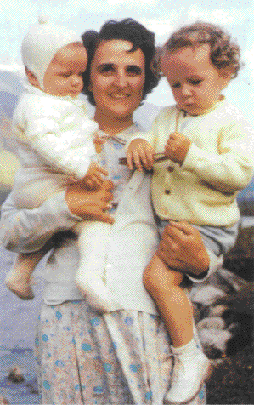
My husband likes to listen to the 1957 Sir Thomas Beecham recording of La Bohème, not because he’s a connoisseur, but because it’s the one we have (I used to also have the von Karajan recording with the luminous young Pavarotti and Mirella Freni, but I gave it to my ex-husband years ago and haven’t had the heart to replace it). The Beecham recording features Victoria de los Angeles (above) as Mimì, Jussi Bjoerling as Rodolfo, Robert Merrill as Marcello (my favorite character in this opera), and Lucine Amara as Musetta. Sometimes it’s almost too much for me to hear these wonderful singers, all dead except Amara. No one sings like that anymore: the plangent, conversational, extremely feminine singing of de los Angeles is sui generis, as are Bjoerling's passionate yet slightly restrained Italianate style and Merrill’s combination of wit, warmth, and virility. The deaths of singers in the past year and a half have hit me very hard: Pavarotti, Beverly Sills, Jerry Hadley, and especially Lorraine Hunt Lieberson, whom many a sensitive young mezzo idolized fiercely for her depth of soul and her fragile humanity. But then again, sometimes I can’t even stand the thought that Beethoven is dead. I heard a recording yesterday of Yo-Yo Ma and Emmanual Ax playing his Variations on “Bei Männern, welche Liebe fühlen” from The Magic Flute (WoO 46), and it struck me as the most perfect music ever written; and I longed for those days in Vienna at the turn of the nineteenth century, when, at least in my imagination, the soul was less fettered and there was a lot more great music around to ease the pain of life.











2 comments:
The weaknesses of my musical education are glaring, but even I notice how styles can change dramatically over a generation. I'm not sure if this manic and yelling generation can be quiet and still enough to carry off many great scenes from opera and drama.
I never get tired of "Sull'aria." There are several versions on YouTube. I keep coming back to Te Kanawa & Cotrubras. Effortless it seems.
http://www.youtube.com/watch?v=gaVIwwNhocg
T.Q., "Sull'aria" is, to me, pefection itself, one of the best, best pieces of music ever written. I had the great pleasure several years ago of performing it in a production with my dear friend Soprannie (see http://pentiment.blogspot.com/2007/10/voices-that-have-gone-part-6-two.html) in a production of Figaro in which she was the Countess and I was Susanna. I would give a lot to have an experience like that again.
A couple of years ago, right after my son was born, I was watching a BBC video about the great voices of the 20th century with my extended family, and thinking about how much singing has changed. I mentioned this, but couldn't explain how. One of my brothers, not a singer but a composer (we are a musical family), explained it to our mother in a very succinct way, I thought: he said that beginning in the 1950s the American operatic style began to be dominant, and that it emphasized long phrases, a narrower vibrato, and more volume than the older, Italianate style. To my ear, there's a big difference in the singing styles of Renata Tebaldi and Leontyne Price, for instance, though they were contemporaries and both great. Price is the quintessential American soprano, I think.
Thank you for your comment about the quiet and stillness necessary to great singing. I want to consider this more and, if I have time, will blog about it later.
Post a Comment